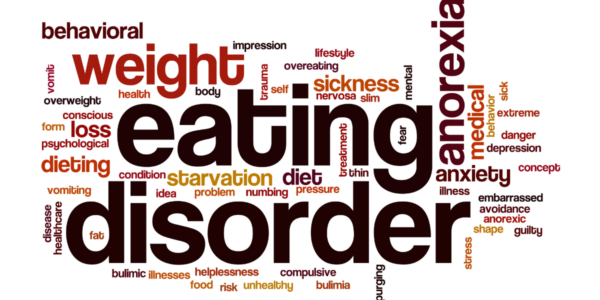How Do I Support Someone with an Eating Disorders? A Story of Compassion and Understanding
On a chilly morning in early November, the leaves rustling outside, Namrata Sat at her kitchen table, sipping a cup of herbal tea. Her mind wandered to her teenage son, Akshat, who had been acting differently for several months. Once full of laughter and energy, Akshat had become withdrawn, irritable, and fixated on food. Namrata’s heart ached as she watched her vibrant boy transform into a shadow of himself. She felt helpless and overwhelmed, unsure of how to help her son.
If you’re a parent like Namrata or someone who loves someone with an eating disorder, you’re not alone. Supporting someone with an eating disorder is a challenging and emotional journey, but it is also a path where empathy, education, and patience can make a profound difference. This blog will guide you through the steps Namrata took to support Akshat, offering insights and practical advice to help you navigate this difficult terrain.

Recognizing the Signs of Eating Disorder
Eating disorders are serious mental health conditions that affect a person’s eating habits and can have severe health consequences. They often manifest as anorexia nervosa, bulimia nervosa, or binge-eating disorder. Understanding and recognizing the signs are crucial first steps.
Namrata noticed several warning signs in Akshat:
- Preoccupation with food: Akshat constantly talked about calories and weight.
- Changes in eating habits: He started skipping meals and avoiding family dinners.
- Physical changes: Akshat lost a noticeable amount of weight.
- Behavioral changes: He became more withdrawn and irritable.
These signs prompted Namrata to research and understand more about eating disorders. Knowledge is the foundation of effective support. It helps dispel myths and equips you with the information needed to navigate the complexities of the disorder.
Educate Yourself
Namrata turned to reputable sources like the National Eating Disorders Association (NEDA) and consulted healthcare professionals. She learned that eating disorders are not just about food; they are deeply rooted in emotional and psychological issues. They require comprehensive treatment that often involves a combination of medical, nutritional, and psychological care.
Here are key points Namrata discovered:
- Eating disorders are not a choice: They are serious mental health conditions that require professional treatment.
- Anyone can be affected: Eating disorders do not discriminate based on age, gender, or background.
- Early intervention is crucial: The sooner someone gets help, the better their chances of recovery.
- Treatment is multifaceted: It involves medical, nutritional, and psychological support.
Approach with Empathy and Non-Judgment
One evening, Namrata decided to talk to Akshat. She chose a quiet moment and approached him with empathy and love. “Akshat,” she began gently, “I’ve noticed you’ve been having a tough time with food lately, and I’m really worried about you. I love you so much and want to support you in any way I can.”
Namrata’s approach was non-judgmental and compassionate. She avoided blaming or criticizing Akshat and focused on expressing her concern and support. Creating a safe and supportive environment is essential.
Here are tips for having this conversation:
- Choose the right moment: Find a calm, private time to talk.
- Use “I” statements: This focuses on your feelings and observations without sounding accusatory. For example, “I’ve noticed you’re skipping meals and it worries me.”
- Listen: Allow them to share their feelings and experiences without interruption.
- Avoid simple solutions: Don’t suggest they “just eat” or “snap out of it.” Acknowledge the difficulty of their struggle.
Encourage Professional Help
Namrata understood that Akshat needed more than just her support; he needed professional help. She suggested they visit their family doctor together to discuss his health and explore treatment options. Encouraging someone to seek professional help can be challenging, especially if they feel ashamed or resistant.
Here’s how Namrata handled it:
- Be supportive: Offer to help them find a healthcare provider and go with them to appointments.
- Respect their pace: They might not be ready to seek help immediately. Continue to express your concern and willingness to support them.
- Provide resources: Share information about treatment options and success stories.
Be Patient and Persistent
Recovery from an eating disorder is a long and often difficult journey. There will be good days and bad days. Namrata learned to celebrate Akshat’s small victories, like eating a meal without anxiety, and to offer comfort on the tough days.
Patience and persistence are key. Here’s what you can do:
- Celebrate small steps: Recognize and praise their efforts and achievements, no matter how small.
- Stay involved: Continue to show your support and involvement in their recovery process.
- Educate yourself on recovery: Understand that setbacks are a normal part of recovery. Learn how to respond to them constructively.
Practice Self-Care
Supporting someone with an eating disorder can be emotionally draining. Namratafound it essential to take care of her own mental health. She joined a support group for parents of children with eating disorders, found time for her hobbies, and sought emotional support from friends and family.
Taking care of yourself enables you to be a better support for your loved one. Here are some self-care tips:
- Seek support: Find a support group or talk to a counselor.
- Set boundaries: It’s okay to set limits to protect your own well-being.
- Take time for yourself: Engage in activities that you enjoy and that relax you.
Building a Supportive Environment
Creating a supportive environment at home was another critical step for Namrata. She made an effort to foster a positive relationship with food and body image. This involved several practical changes:
- Avoid diet talk: Focus on balanced eating rather than dieting or weight.
- Promote body positivity: Celebrate all body types and discourage negative body talk.
- Encourage healthy habits: Focus on the enjoyment of physical activities rather than their calorie-burning effects.
Communicate and Reassure
Throughout Akshat’s journey, Namrata maintained open lines of communication. She regularly checked in with him, not just about his eating habits but about his feelings and experiences. Namrata reassured Akshat that he was loved unconditionally and that his worth was not tied to his appearance or eating habits.
Communication and reassurance help in building trust and a strong support system. Here’s how to do it:
- Check in regularly: Ask how they’re feeling and listen without judgment.
- Show unconditional love: Remind them that they are valued and loved no matter what.
- Be consistent: Consistent support and communication reinforce your commitment to their well-being.
Conclusion: A Journey of Compassion and Hope
Namrata’s journey with Akshat is ongoing, filled with ups and downs, but it’s also a journey of compassion and hope. By educating herself, approaching with empathy, encouraging professional help, and creating a supportive environment, Namrata has become a pillar of support for Akshat. She has learned that recovery is possible, and that love and understanding are powerful tools in the fight against eating disorders.
If you are in a similar situation, remember that you are not alone. Reach out for support, educate yourself, and approach your loved one with compassion and patience. Together, you can navigate this challenging path and find hope and healing.
By sharing Namrata and Akshat’s story, I hope to provide not only guidance but also a sense of community and understanding. Each step taken with empathy and support brings your loved one closer to recovery. Let’s walk this journey together, spreading awareness and hope for those affected by eating disorders.

